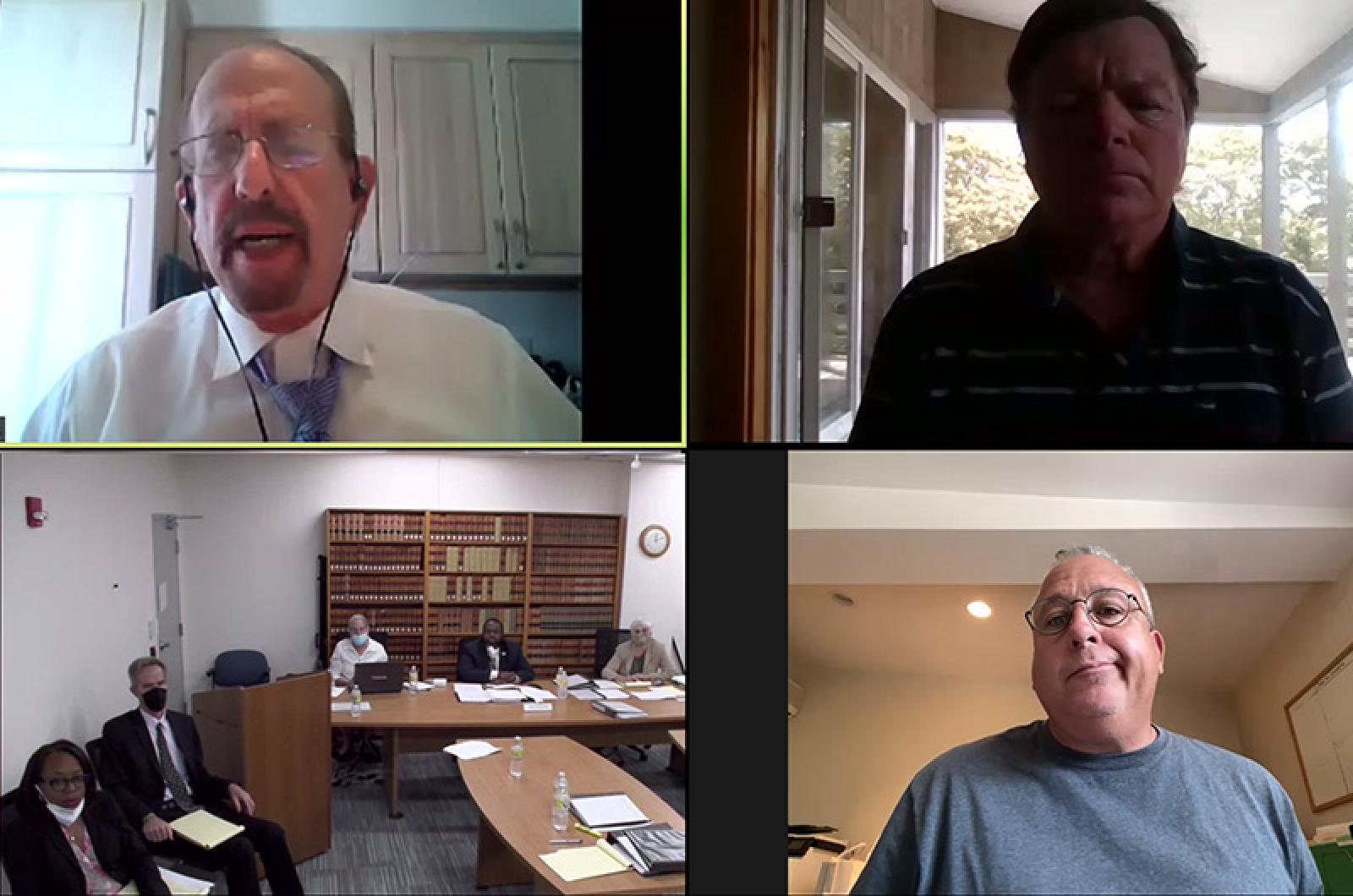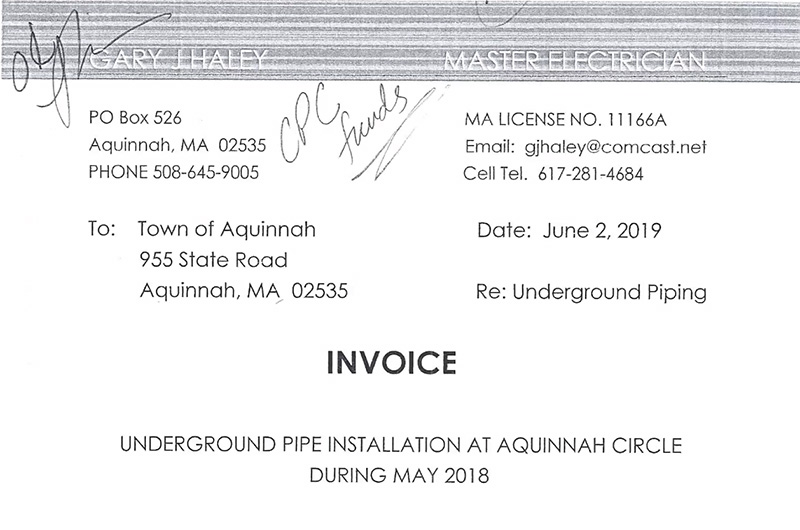A two-day hearing in Boston early this week put a harsh spotlight on the town of Aquinnah and its select board member Gary Haley, who is under scrutiny by the Massachusetts Ethics Commission for allegedly violating state conflict of interest laws four years ago.
Mr. Haley, who was recently elected to a third term as a selectman and is also a master electrician by trade, has been cited for civil violations after he performed electrical work for the town is 2018 and was later paid $17,000 from town funds. Among other things, the ethics commission claims he overbilled the town by approximately $4,000 for the electrical work, chose himself as a project manager and approved town expense warrants that resulted in him receiving a check for the full amount.
Mr. Haley has steadfastly disputed the claims.
Testifying before the ethics panel Monday afternoon, he said he had volunteered to help out on an emergency basis on the job that involved burying cables and conduit as part of a town-sponsored beautification project at the Circle, near the Gay Head Cliffs.
“I think Aquinnah is the best town around and I’d do anything to help out,” Mr. Haley said in part. He said he had no contract for the work, that he had started as a volunteer working “part time at the end of the day.” But when the project became complicated, he testified that he brought in his own workers and paid them in cash. “I keep a lot of cash around because that’s how I can entice people to get work done,” Mr. Haley said. “If you’ve got cash for them, they’ll come.”
Held in Boston and over Zoom, the hearing ran for more than eight hours on Monday and concluded early Tuesday afternoon. Closing arguments have tentatively been set for September in the case.
The proceeding was marked throughout by testy and sometimes hostile exchanges.
A long list of witnesses were called to testify on Monday, including Aquinnah select board member Juli Vanderhoop, police chief Randhi Belain, highway superintendent Jay Smalley, town accountant Emily Day and town administrator Jeffrey Madison on Monday, in addition to Mr. Haley. On Tuesday Paul Bettencourt, an Island electrician and subcontractor who had worked on the conduit project, struck a combative stance, prompting a recess at one point in order to allow tensions to cool.
Mr. Haley is represented by Richard Gross, an attorney based in Aquinnah. The state is represented by Candies Pruitt as counsel and prosecutor.
State ethics commissioner Eron Hackshaw is the presiding officer for the hearing.
The case went to mediation last fall, but saw no resolution.
On Monday Mr. Haley provided his version of events that transpired in 2018 with the project at the Circle. He said while he had begun as a volunteer, he eventually billed the town for $17,000 after the job had grown long and involved coordinating with Comcast and Verizon and a local contractor who had become difficult, among other things. He said he had told Mr. Madison that he was submitting a bill.
“We had a lot of hard labor up there . . . and I’ve got to get something for this,” Mr. Haley testified in part, recalling the conversation with Mr. Madison.
But he also said he said he expected the bill to go to town meeting and that he would have an opportunity to explain what had happened.
“I had to put an invoice together because I had to pay other people .... I would explain this at town meeting ... and then they would vote yes or no whether they would pay it. If they didn’t want to pay for it ... I would have to just eat it,” Mr. Haley told the panel.
He said he was surprised when later a check arrived in his mailbox.
“It came so fast,” Mr. Haley said.
On Tuesday, attorneys on both sides questioned John Dumas, an employee with the utility giant Eversource, and Paul Bettencourt, an Island electrical contractor hired by Eversource for the work at the Circle.
Tensions flared at one point when Mr. Bettencourt objected to Mr. Gross’s line of questioning.
“He’s twisting everything,” Mr. Bettencourt said.
“In 50 years of court, I’ve never seen a witness do this before,” Mr. Gross said.
The exchange prompted Mr. Hackshaw the hearing officer to recess the proceeding.
Ms. Pruitt also introduced new evidence involving a Google email address, raising questions of credibility. In testimony Monday, Mr. Haley claimed he had paid a woman named Justina Jenkins and her boyfriend for work performed under his supervision.
Ms. Pruitt alleged that Mr. Haley had no contact with anyone named Justina Jenkins except by email. She said prosecutors had obtained documentation that a gmail address under the name of Justina Jenkins was created later, long after the work was performed.
“Mr. Haley has never had any communication with this person named Ms. Jenkins . . . beyond email,” Ms. Pruitt said.
When testimony had concluded, Mr. Gross made a formal motion to dismiss three of the four counts against Mr. Haley.
The motion was denied.
In the coming weeks, transcripts of the hearing will be prepared and attorneys on both sides will file briefs.
Aidan Pollard contributed reporting.







Comments (8)
Comments
Comment policy »